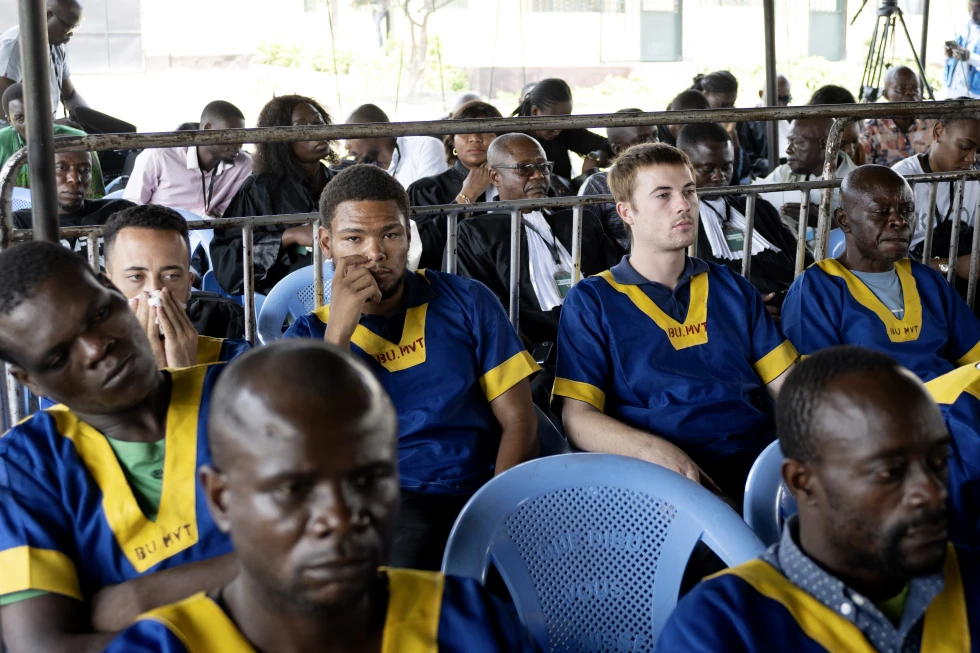HARARE – A law which criminalises insult “disproportionately limits the right to freedom of expression” and is unconstitutional, the High Court has ruled.
The offending law, section 95(1)(a) of the Criminal Law (Codification and Reform) Act criminalises any speech or conduct that “seriously impairs” the dignity of another person.
The law however does not define key terms such as “insult” or “serious impairment,” leaving these determinations to the discretion of law enforcement officers and the judiciary.
In a November 22 judgement, Justice Joel Mambara ruled: “After considering the submissions of the parties, the relevant constitutional provisions, applicable, international treaties and conventions, and the global trends in human rights law, this court finds that s95(1)(a) of the Criminal Law (Codification and Reform) Act is unconstitutional.
“The provision is vague, overbroad, and disproportionately limits the right to freedom of expression.”
Justice Mambara said “while the protection of personal dignity is a legitimate aim, less restrictive means—such as civil remedies—are available to achieve this purpose without resorting to criminal sanctions.”
He added: “Section 95(1)(a) fails the proportionality test set out in s86(2) of the Constitution. It imposes greater restrictions on freedom of expression than are necessary to protect dignity and allows for subjective and arbitrary enforcement. The vagueness of the law further exacerbates its unconstitutionality, as it does not provide clear guidance on what constitutes criminal conduct.”
The finding of constitutional invalidity now awaits confirmation by the Constitutional Court.
The ruling follows an application by a Harare woman, Amanda Cohen, who was arrested for insulting her nephew, Aron Vico, during a heated family dispute over inheritance following the death of her father who owned Waverly Blankets.
During a family meeting, Cohen allegedly made derogatory remarks toward Vico, referring to him as a “thief” and a “gay boy.” Vico took offence to these statements, claiming that they caused him significant emotional distress and seriously impaired his dignity.
At her trial in the Magistrates’ Court, she argued that her statements were made in the heat of the moment and were not intended to cause harm to Vico’s dignity. She also contended that her words reflected her genuine frustration with the ongoing family dispute and that they should not be subject to criminal prosecution.
The lower court convicted her for contravening s95(1)(a), and she was sentenced to serve a penalty of community service. She appealed the sentence to the High Court and the appeal was dismissed.
Through her lawyer Tendai Biti, Cohen approached the High Court arguing that the law that was used to convict her was vague, lacks legal clarity, and grants excessive discretionary power to law enforcement officers and judicial officers.
Biti also argued that the law allows for arbitrary enforcement and leads to disproportionate interference with her constitutional rights, particularly her right to free speech as protected under section 61 of the constitution. The law’s vagueness, she argued, creates a risk of discriminatory application, thus violating the equal protection before the law clause under section 56 of the constitution.
Lawyers for the prosecutor general, who was cited as the first respondent to the application, contended that the law serves a legitimate purpose in protecting personal dignity and is a core constitutional value enshrined under section 51 of the constitution.
The prosecutor general maintained that the limitations on freedom of expression imposed by section 95(1)(a) are justified under section 86(2) of the constitution, which permits limitations on rights when they are reasonable, necessary, and justifiable in a democratic society.
Justice Mambara said: “Section 95(1)(a) is inconsistent with Zimbabwe’s obligations under international treaties, including the International Covenant on Civil and Political Rights (ICCPR), the African Charter on Human and Peoples’ Rights (ACHPR), and the Universal Declaration of Human Rights (UDHR), all of which emphasise the importance of freedom of expression and encourage states to rely on civil remedies rather than criminal sanctions for defamation and insult. In the result it is ordered as follows:
“Section 95(1)(a) of the Criminal Law (Codification and Reform) Act, [Chapter 9:23] is hereby declared unconstitutional and is in violation section 56, section 60 and section 61 of the constitution of Zimbabwe and is hereby struck down.
“This order remains suspended until confirmed by the Constitutional Court of Zimbabwe.”
Cohen however failed in her bid to have her conviction quashed.
“Given that the High Court order dismissing the appeal has not been set aside by a competent court, the order is still valid and binding. Even though the applicant seeks declaratory relief challenging the constitutionality of the law under which they were convicted, this does not automatically nullify the prior judgment. In other words, the constitutional application does not vacate the appeal decision,” Justice Mambara ruled.
Biti, speaking after the judgement, said the High Court had “struck a blow for freedom of expression.”
















